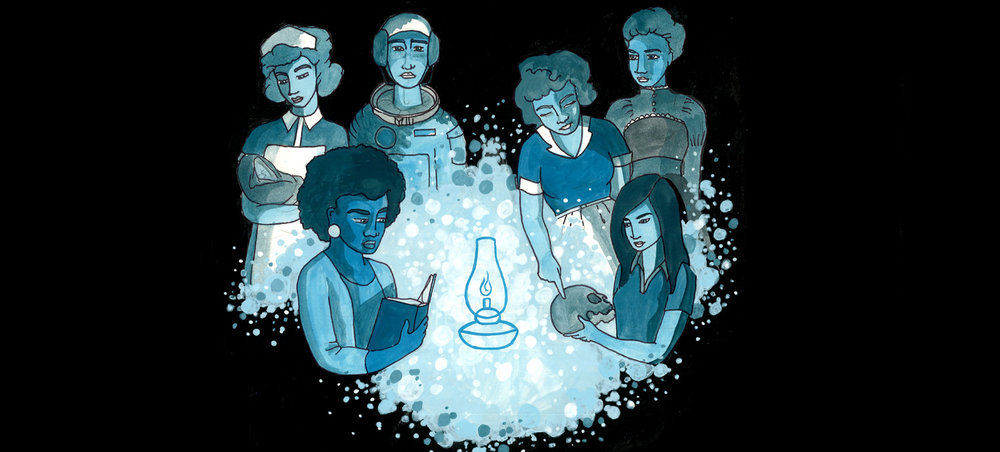Women in Science
When you are a girl and you talk about pursuing science in an Indian family, you are often regarded as specimen dropped from outer space. The reaction you’ll get could belong to a wide spectrum: from outright being denied, to being treated like an alien, to supportive but with constant remarks of how ‘not like other girls you are’.
Only 15 percent of the Indian research and development workforce are women, while the global average is 30 percent, says National Task Force on women in science report. Moreover, only 25% of women are in the scientific faculty of various institutes and universities. Biological research institutions are an exception though. In 2017, of the total applicants to various branches of IITs, only 10% were women. Moreover, only 5% of fellowships awarded by the Indian National Science Academy, Indian Academy of Sciences and National Academy of Agricultural Sciences have gone to women.
In this age, why do we see such a small number of women going towards sciences? Is it that women have less aptitude towards science, as the general population believes? In 2018, only 29% of the students appearing for JEE-Mains were girls. So, it wouldn’t be right to say that women can’t get into engineering colleges, it would be more correct to say that they don’t even take up sciences.
Even in high schools, you can find a shocking gender ratio difference in a Science with Maths class, with just a few girls among a class full of boys. This difference only increases in engineering colleges. On the other hand, a class of Sciences with Biology would have a majority of girls, with only a few boys among them.
Even in high schools, you can find a shocking gender ratio difference in a Science with Maths class, with just a few girls among a class full of boys. This difference only increases in engineering colleges.
It is hard to determine the exact reason for this disparity in numbers, however, it is certain that the gendering of the subjects is the most crucial factor. Science, especially engineering is largely considered a field for men, while medicine is considered the perfect field for women due to their supposedly “nurturing” and “healing” instincts.
Also read: Dalit Women Learn Differently: Experiences In Educational Institutions
Moreover, the gender discrimination that women face once they get into this field is a factor that deters them. A 2003 study of four science and technology higher education institutions in India found that 40% of female faculty members felt some form of gender discrimination in their respective institutions, favoring male faculty members. In addition, in terms of hiring practices, the interview committees of these institutions asked female applicants how they would balance their family with work, and why they were applying for a position rather than being a homemaker. Discriminatory hiring practices in favour of men were also pursued due to beliefs that women would be less committed to work after marriage.
A 2003 study of four science and technology higher education institutions in India found that 40% of female faculty members felt some form of gender discrimination in their respective institutions, favoring male faculty members.
Only a small percentage of women who do pursue science in higher education convert it into a career. Many women engineers, PhD degree holders and masters degree holders in science who did not pursue it any further. The circumstances they face can be largely responsible for this. The majority of those who seek early retirement are women. Information technology is one sector that is utilising women’s talents more effectively. The teaching profession comes next, especially when it comes to biology.
Also read: What Barriers Do Teen Age Girls Face To Access Education In India?
It is important to recognise that subjects inherently don’t discriminate between men and women, it’s the connotations that we associate with them that leads to the difference.
Featured Image Source: Lady Science
About the author(s)
Shravya Shruti is currently pursuing masters in English from Delhi University. She can be often found curled up with a good book, or trying to hide from people, or having an existential crisis. Sometimes all at once.




